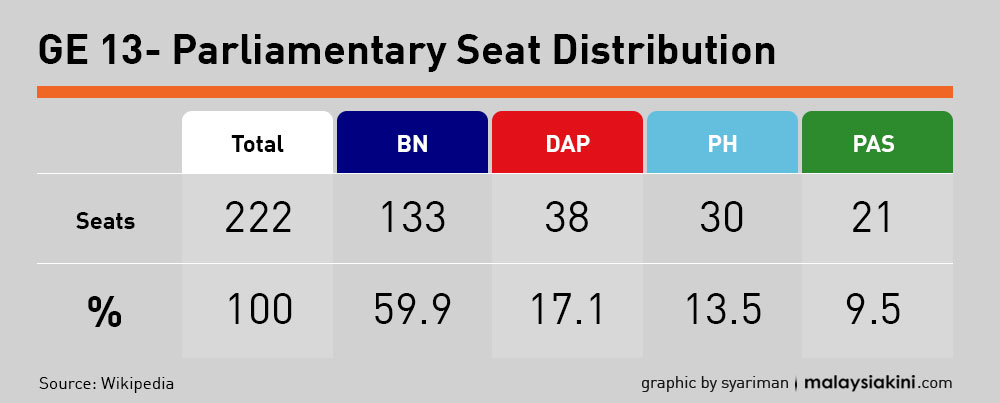“Political marketing […] plays to people's emotions, not their thoughts. It operates on the belief that repeating a catchy phrase, even if it's untrue, will seal an idea in the mind of the unknowing or uncaring public. It assumes that citizens will always choose on the basis of their individual wants and not society's needs. It divides the country into 'niche' markets and abandons the hard political work of knitting together broad consensus or national vision.”
― Susan Delacourt, ‘Shopping for Votes: How Politicians Choose Us and We Choose Them’
QUESTION TIME | The statistics show beyond any shadow of a doubt that DAP cannot form the government without the support of Malay-based parties. For Pakatan Harapan or any other coalition of which the DAP is part, to win the elections, they need to have a large amount of support from the Malay voter base even if the Malay votes are split.
Put in another way, the only way DAP will help to form the government is if the electorate decides so and this cannot be done without Malay support. This implies that if DAP comes to power in a coalition, the number of Malay MPs will always exceed the number of Chinese MPs.
This is simply because Malays form just over half of our population while the Chinese, from which it cannot be denied that DAP gets most of its support, form about 23 percent of the population.
While the Chinese form the majority of its members, it is undeniable that DAP has a significant number of other members. At GE13, DAP won 38 seats (see table below), or 17 percent of the seats, which is lower than the Chinese population share of 23%.
Decrease this by the eight non-Chinese MPs, and DAP’s seats held by Chinese form just 13.5 percent of the seats. PKR and PAS, the other members of the coalition then, held 51 seats and together exceeded DAP’s total by 13 seats, or by 21 seats if we take the non-Chinese DAP MPs out.

While DAP has only two Malay MPs and therefore little Malay representation, it has a significant presence and representation of Indian MPs at six, more than the Indian representation of BN MPs at only four. In fact, for many Indian issues, DAP MPs, both of Indian and non-Indian origin, have done a better job and have been more outspoken than MIC.
While the Chinese voted solidly behind DAP and Pakatan Rakyat including PAS in the last elections, that alone will never be enough to take control of government - there has to be a substantial swing of the Malay vote to...

